Late Spring is a japonais film of genre Drama directed by Yasujirō Ozu released in USA on 21 july 1972 with Chishū Ryū
Late Spring (1949)
Banshun

If you like this film, let us know!
Late Spring (晩春, Banshun) is a 1949 Japanese drama film, directed by Yasujirō Ozu and produced by the Shochiku studio. It is based on the short novel Father and Daughter (Chichi to musume) by the 20th century novelist and critic Kazuo Hirotsu, and was adapted for the screen by Ozu and his frequent collaborator, screenwriter Kogo Noda. The film was written and shot during the Allied Powers' Occupation of Japan and was subject to the Occupation's official censorship requirements. It stars Chishū Ryū, who was featured in almost all of the director’s films, and Setsuko Hara, making her first of six appearances in Ozu’s work. It is the first installment of Ozu’s so-called “Noriko trilogy”—the others are Early Summer (Bakushu, 1951) and Tokyo Story (Tokyo Monogatari, 1953)—in each of which Hara portrays a young woman named Noriko, though the three Norikos are distinct, unrelated characters, linked primarily by their status as single women in postwar Japan.
Late Spring belongs to the type of Japanese film known as shomingeki, a genre that deals with the ordinary daily lives of working class and middle class people of modern times. The film is frequently regarded as the first in the director’s final creative period, "the major prototype of the [director's] 1950s and 1960s work." These films are characterized by, among other traits, an exclusive focus on stories about families during Japan's immediate postwar era, a tendency towards very simple plots and the use of a generally static camera.
Late Spring was released in September 1949 and received very positive reviews in the Japanese press. In the following year, it was awarded the prestigious Kinema Junpo critics' award as the best Japanese production released in 1949. In 1972, the film was commercially released in the United States, again to very positive reviews. Late Spring has been referred to as the director's "most perfect" work, as "the definitive film of Ozu's master filmmaking approach and language" and has been called "one of the most perfect, most complete, and most successful studies of character ever achieved in Japanese cinema." In the 2012 version of the widely respected decennial "Greatest Films of All Time" Sight & Sound poll, published by the British Film Institute (BFI), Late Spring appears as the 15th greatest film of all time.
Synopsis
Professor Shukichi Somiya (Chishu Ryu), a widower, has only one child, a twenty-seven-year-old unmarried daughter, Noriko (Setsuko Hara), who takes care of the household and the everyday needs—cooking, cleaning, mending, etc.—of her father. On a shopping trip to Tokyo, Noriko encounters one of her father's friends, Professor Jo Onodera (Masao Mishima), who lives in Kyoto. Noriko knows that Onodera, who had been a widower like her father, has recently remarried, and she tells him that she finds the very idea of his remarriage distasteful, even "filthy." Onodera, and later her father, tease her for having such thoughts.Actors
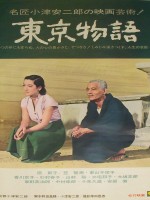
Chishū Ryū
(Shukichi Somiya)
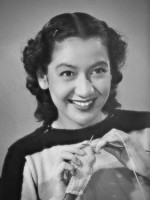
Setsuko Hara
(Noriko Somiya)
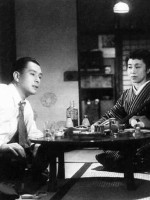
Haruko Sugimura
(Masa Taguchi)
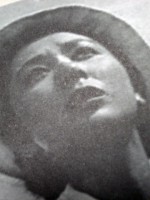
Yumeji Tsukioka
(Aya Kitagawa)

Kuniko Miyake
(Akiko Miwa)
Comments
Leave comment :
Suggestions of similar film to Late Spring
There are 102 films with the same actors, 38 films with the same director, 61899 with the same cinematographic genres, to have finally 70 suggestions of similar films.If you liked Late Spring, you will probably like those similar films :

Good Morning (1959)
, 1h34Directed by Yasujirō Ozu
Origin Japon
Genres Drama, Comedy
Themes Films about children
Actors Keiji Sada, Yoshiko Kuga, Chishū Ryū, Kuniko Miyake, Haruko Sugimura, Sadako Sawamura
Rating77%





The film takes place in suburban Tokyo, and begins with a group of boy students going home.

Tokyo Twilight (1957)
, 2h20Directed by Yasujirō Ozu
Origin Japon
Genres Drama
Themes Films about families, Pregnancy films, Seafaring films, Transport films
Actors Kamatari Fujiwara, Ineko Arima, Setsuko Hara, Isuzu Yamada, Chishū Ryū, Haruko Sugimura
Rating80%





Akiko Sugiyama (Ineko Arima) is a young college graduate girl learning English shorthand. Her elder sister Takako (Setsuko Hara), running away from an unhappy marriage, has returned home to stay with Akiko and their father Shukichi (Chishū Ryū) in Tokyo, together with her toddler girl. Shukichi works in a bank in Tokyo. Akiko has a relationship with her college boyfriend Kenji, which results in an unwanted pregnancy. Later, Akiko has an abortion after an encounter in which she realizes that her boyfriend does not love her.

Early Summer (1951)
, 2h4Directed by Yasujirō Ozu
Origin Japon
Genres Drama, Comedy-drama
Themes Seafaring films, Transport films
Actors Setsuko Hara, Chishū Ryū, Chikage Awashima, Ichirō Sugai (菅井一郎), Kuniko Miyake, Haruko Sugimura
Rating80%





Noriko (Setsuko Hara), a secretary in Tokyo, lives in the extended Mamiya family at Kamakura, Kanagawa, which includes her parents Shūkichi and Shige (Ichirō Sugai and Chieko Higashiyama), her older brother Kōichi (Chishū Ryū), a physician, his wife Fumiko (Kuniko Miyake), and their two young sons Minoru (Zen Murase) and Isamu (Isao Shirosawa).

Tokyo Story (1953)
, 2h16Directed by Yasujirō Ozu
Origin Japon
Genres Drama
Themes Films about families, Seafaring films, Transport films
Actors Chishū Ryū, Setsuko Hara, Chieko Higashiyama, Haruko Sugimura, Sō Yamamura, Kyōko Kagawa
Rating81%





A retired couple, Shūkichi and Tomi Hirayama (played by Chishū Ryū and Chieko Higashiyama respectively) live in the town of Onomichi in southwest Japan with their unmarried youngest daughter Kyōko (played by Kyōko Kagawa). They have a total of 5 children, who are all grown up. The couple travel to Tokyo to visit their son and daughter as well as their widowed daughter-in-law.

The End of Summer (1961)
, 1h43Directed by Yasujirō Ozu
Origin Japon
Genres Drama
Actors Ganjirō Nakamura, Setsuko Hara, Yōko Tsukasa, Chishū Ryū, Michiyo Aratama, Keiju Kobayashi
Rating76%





Manbei Kohayagawa (Ganjirō Nakamura) is the head of a small sake brewery company at Kyoto, with two daughters and a widowed daughter-in-law. His daughter-in-law and youngest daughter, Akiko (Setsuko Hara) and Noriko (Yoko Tsukasa), stay together in Osaka. Akiko helps out at an art gallery and has a son Minoru. Noriko, unmarried, works as a salaried office worker. Manbei's other daughter, Fumiko (Michiyo Aratama), lives with him. Her husband, Hisao, helps at the brewery and they have a young son Masao.

Late Autumn (1960)
, 2h8Directed by Yasujirō Ozu
Origin Japon
Genres Drama, Comedy
Actors Setsuko Hara, Ryō Ikebe, Mariko Okada, Yōko Tsukasa, Chishū Ryū, Keiji Sada
Rating78%





Three middle-aged friends and former college mates – Mamiya (Shin Saburi), Taguchi (Nobuo Nakamura) and Hirayama (Ryuji Kita) – meet up for the 7th memorial service of a late college friend, Miwa. Miwa's widow Akiko (Setsuko Hara) and 24-year-old daughter Ayako (Yoko Tsukasa) are also present. The three friends remark amongst themselves how good Akiko looks despite being in her forties.
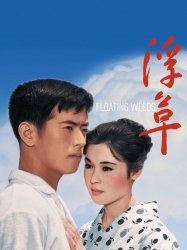
Floating Weeds (1959)
, 1h59Directed by Yasujirō Ozu
Origin Japon
Genres Drama
Themes Seafaring films, Films about television, Transport films
Actors Ganjirō Nakamura, Machiko Kyō, Ayako Wakao, Hiroshi Kawaguchi, Chishū Ryū, Haruko Sugimura
Rating78%





The film takes place during a hot summer in 1958 at a seaside town on the Inland Sea. A troupe of travelling theatre arrives by ship, headed by the troupe's lead actor and owner, Komajuro (Ganjiro Nakamura). The rest of the troupe goes around the town to publicise their kabuki performances.

Dragnet Girl (1933)
, 1h40Directed by Yasujirō Ozu
Origin Japon
Genres Drama, Crime, Romance
Themes Gangster films
Actors Kinuyo Tanaka, Chishū Ryū, Jōji Oka, Sumiko Mizukubo, Yumeko Aizome
Rating69%





Tokiko (Kinuyo Tanaka) is a typist and the girlfriend of a small-time gangster, Joji (Joji Oka). A student, Hiroshi (Kōji Mitsui), joins the gang. When Joji begins to fall for Hiroshi's sister, Kazuko (Sumiko Mizukubo), Tokiko decides to scare her rival away. However, Tokiko takes a liking to Kazuko and decides to reform. Joji throws Tokiko out, but she soon returns and convinces him to give up his life of crime.

An Inn in Tokyo (1935)
, 1h20Directed by Yasujirō Ozu
Origin Japon
Genres Drama, Comedy-drama
Actors Chishū Ryū, Takeshi Sakamoto, Tomio Aoki, Chōko Iida, Yoshiko Okada
Rating74%





Kihachi (Takeshi Sakamoto) wanders around the industrial flatlands of Tokyo's Koto district with his two young sons, Zenko (Tokkan Kozo) and Masako (Takayuki Suematsu), looking for work. Unable to find a job, Kihachi relies on his sons to catch stray dogs for the reward money, but Zenko wastes the bounty buying himself a much-desired officer's cap. Later, the brothers quarrel and lose the family's bundle. Kihachi tells them that they no longer have enough money to pay for both a meal and a bed for the night. They choose a meal. At a cafe they meet Kihachi's old friend, Otsune (Choko Iida), who finds Kihachi a job and allows the family to rent a room at the cafe.
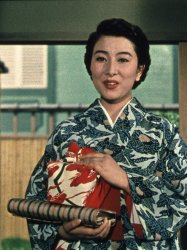
Equinox Flower (1958)
, 1h58Directed by Yasujirō Ozu
Origin Japon
Genres Drama, Comedy, Comedy-drama
Actors Shin Saburi, Kinuyo Tanaka, Yoshiko Kuga, Ineko Arima, Keiji Sada, Chishū Ryū
Rating77%





Wataru Hirayama (Shin Saburi) is a wealthy Tokyo businessman who acts as a go-between for couples seeking marriages. When an old schoolmate Mikami (Chishū Ryū) approaches him for help concerning his daughter Fumiko (Yoshiko Kuga), who has run off owing to a conflict with her father, he agrees. Finding her in a bar where she now works, he listens to her side of the story. Fumiko complains that her father is stubborn, insisting on arranging her marriage, whereas she has now fallen in love with a musician and is adamant to lead life her own way.
 Connection
Connection